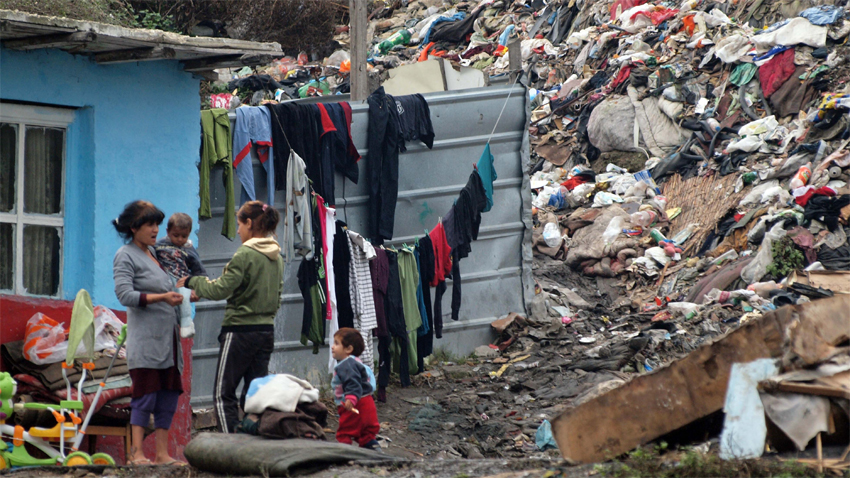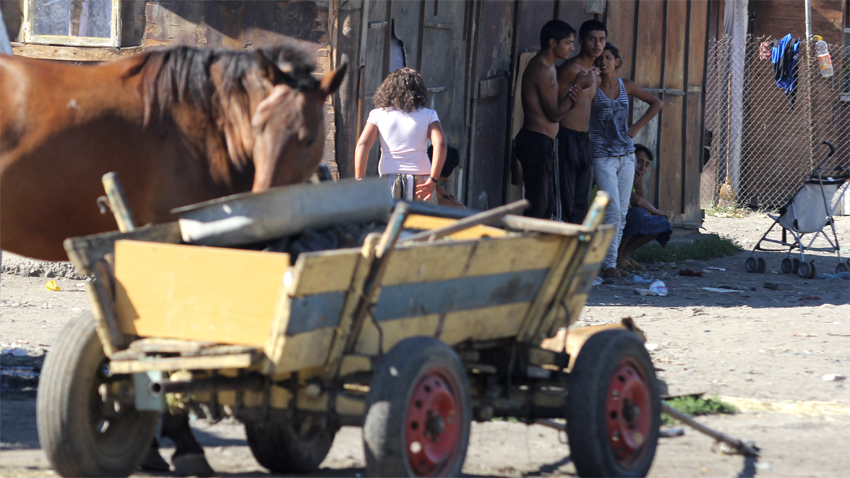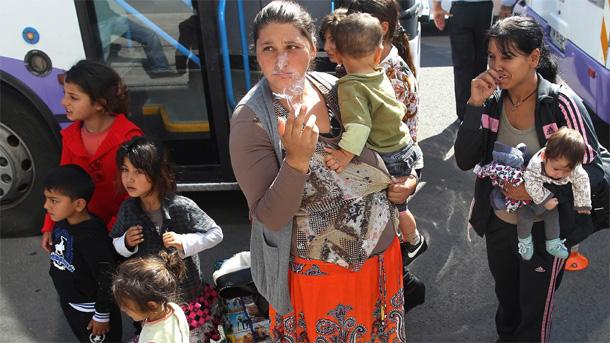A Bulgarian anecdote tells about the greatest dream of the Roma minority – to cut up and sell the Eiffel Tower as scrap metal. While this is just a joke, the truth is that in the autumn of 2013 French police arrested near Paris Roma from Romania and Bulgaria as they were stealing copper cables. Probably the most prosperous profession in Bulgaria is that of the manufacturer or retailer of keys and padlocks.
In fact, those members of society, mostly Roma who earn a living by collecting and selling as scrap metal objects, often steal from rural houses and yards, sometimes using violence. There are striking cases when one locks their rural cottage in autumn, just to find rubbles in the spring, as the walls were destroyed in order to get the reinforcing metal rods inside. After a great number of cases of violent crimes against elderly people too, the Bulgarian police finally started taking some measures. Effects, however, will be temporary as the Roma issue is extremely complex and their integration cannot be delayed.

No matter how much effort and European money is spent for the Roma integration in society, the results are not optimistic. High unemployment among the Roma leads them to desperate poverty and crime. Amid continuing demographic crisis the Roma quickly multiply but the local labor market could not use these people. The main reason is the lack of education.
A study of the Social Ministry two years ago showed that over 7 percent of Roma had never attended school. 8.3 percent have not completed their elementary education. Some 10 percent managed to finish the 4th grade but according to Bulgarian legislation these people are still illiterate, says Deyan Kolev, chairman of the Amalipe Foundation. According to him 25 percent of the Roma in Bulgaria cannot get even the lowest professional qualification.

"The number of Roma with higher education is alarmingly low. Just 0.5 percent of the Roma have graduated from a university. In comparison 25.6 percent of ethnic Bulgarians have university degree. Five percent of ethnic Turks also have higher education. According to the census of 2011, only 9 percent of Roma have secondary education, which is a very low result.”
 What can be done in this situation?
What can be done in this situation?
One way to earn a living for the Roma is in the business with scrap metals. Some 6 million euro is the annual turnover at the black scrap metal market, it was revealed at a discussion, recently organized by the 24 Chasa Daily. Closing the scrap yards where marginalized Roma are the most frequent visitors could stop the criminal activities of those engaged in the business,” many Bulgarians say.
“Begging and aggressive panhandling is mostly controlled by gypsy clans,” says municipal councilor from the IMRO party Angel Djambazki. “This is a business for hundreds of millions of euros per year across Europe. This is what the statistics of western countries that are affected by pickpocketing and begging show.”
This is also one of the reasons for prejudice in Europe against Bulgarians, Mr. Djambazki adds. "This is not due to the behavior of Bulgarian students, scientists or workers who earn an honest living and contribute to the economic growth of these countries. These prejudices are due to gypsy gangs of thieves, prostitutes and beggars throughout Western Europe, creating a bad image for Bulgaria and Bulgarian society. "
However, some good examples exist. There are some Roma who have found their place in other European countries and work honestly as construction workers, janitors, etc.
English version: Alexander Markov
A Christmas tree with Bulgarian decorations has been placed in a central location at the Griffin Museum of Science and Industry in Chicago. For the fifth consecutive year, Bulgarians living in Chicago crafted the lavish decoration of the Bulgarian..
The usurpation of cultural heritage is one of the many inevitable consequences of any military conflict, both historically and today. Until the end of the war in Ukraine, it is impossible to adequately analyse the extent of the damage caused to the..
Athens plans to modernise the Greek army by 2030 Greece's Defence Minister Nikos Dendias presented the plan for changes in the army to the parties in parliament. The reforms will cover all three branches of the military. By 2030, 33 units..
The residents of Pleven (Central North Bulgaria) will bid farewell to 2024 with a Christmas Town and meetings with Santa Claus. This year's festive..
Modernizing critical thinking skills, fact-checking skills and media literacy are essential for society, especially for young people in Bulgaria - the..

+359 2 9336 661
